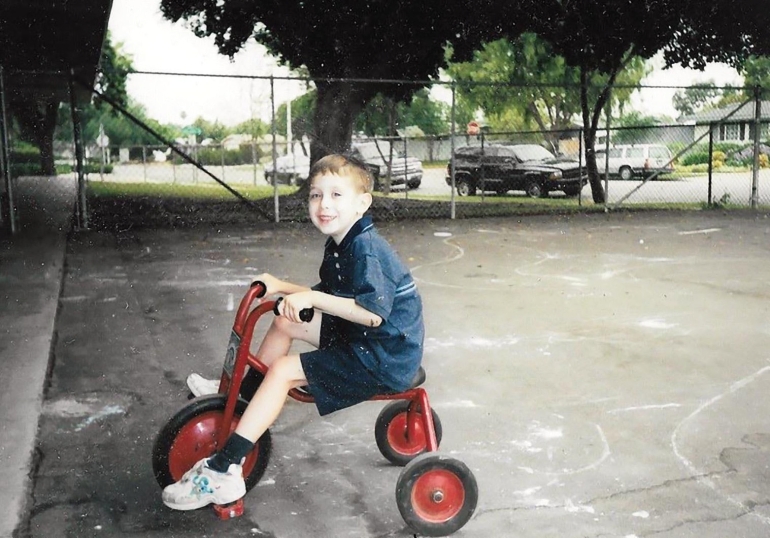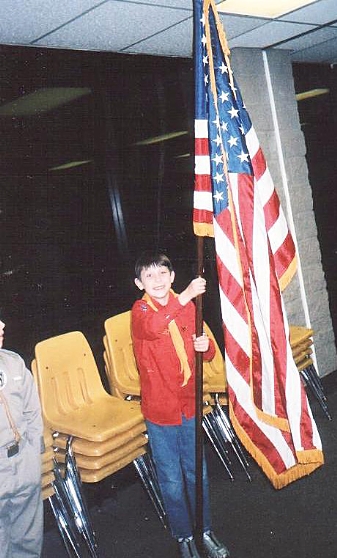computer games, which seemed to rob the time I had with them, thereby making me feel excluded.
I had heard of Autism when I was nine; one of my favorite movies was Miracle Run by Lifetime Movie Network. I must have watched it a hundred times. However, although I really liked drawing and running, I never associated myself with Autism. I did not have all the other things that the characters were exhibiting, such as echolalia and meltdowns. The only thing I knew, was that I never liked how I sounded, and some students did not treat
me fairly. I did question why I had those two aforementioned pull-outs within the school day.
Speaking about the pull-outs, there was one day in my R.S.P. class during upper elementary, when I raised my hand, looked at my R.S.P. teacher in the eye, and asked,
"Do I have Autism?"
He somewhat shrugged it off and said something to the effect, "No, you don't." The other R.S.P. teacher immediately said something like, "You don't need to be asking that."
From that moment until my high school days, I, for whatever reason, did not believe I had Autism.
Then one day as a freshman, I asked my mother the serious question out of the blue, "What do I have?"
That was when I was formally told that I have “Asperger’s Syndrome – a mild form of Autism.”
That was the defining moment when my entire life began to make sense and I began putting stuff together.
I decided to develop skills with which to entertain people and ultimately make a difference in their lives. Back when I was in
early elementary school, I got into art and writing. In third grade, I picked up piano playing. In fifth grade, I began juggling. All of these became my catharses. I entered talent shows and writing contests. I began juggling at my local elementary school in sophomore year and even did a couple of small assemblies. I wanted to make a difference in people's lives.
I got the idea that juggling can represent not giving up on one's passions. In 2018, I developed my juggling analogy. If you make a small mistake or a big mistake in life, and something drops (at
this point I drop one on purpose), do not give up. Bend down, pick it up, and keep going and you will do amazing things.


LEARNING TO LEAD: (Above left) Matthew at the College Park Elementary, circa 2000, in his Preschool Intervention Program; (Above right) Matthew holding the American flag at his Royal Rangers' outpost. Matthew credits the Royal Rangers as being the program that made him the leader he is today, teaching him survival, leadership, responsibility, and other skills.
"I ASK PEOPLE WITHOUT A 'DISABILITY' TO HELP THOSE WHO DO HAVE A 'DISABILITY' FEEL INCLUDED. I TELL EVERYBODY, A 'DISABILITY' SHOULD BE VIEWED AS A 'DIFFERENT ABILITY' TO LIVE LIFE."
Around the same time of my life, I developed a science demo analogy. I make a cloud in a bottle. In it, I explain that if a person bottles things up inside, he or she may begin to feel twisted and knotted up and pretty soon, might explode. This is the part where I release the tension of the transparent water bottle, making a translucent cloud. Ultimately, as I continue to get my point across, I take off the cap and release the cloud in the air before my audience’s eyes. My point is to learn to release emotions by finding somebody whom you can trust.
As a person with Autism, I, for one, can testify how easy it is to be so frightened and angry inside, and we can actually accumulate many things, such as stories of discrimination, being teased, wishing something happened better, and such. People with Autism, like me, might run into a room and stay there for a while. What we are doing is processing things by ourselves. These are times when we need to be alone,